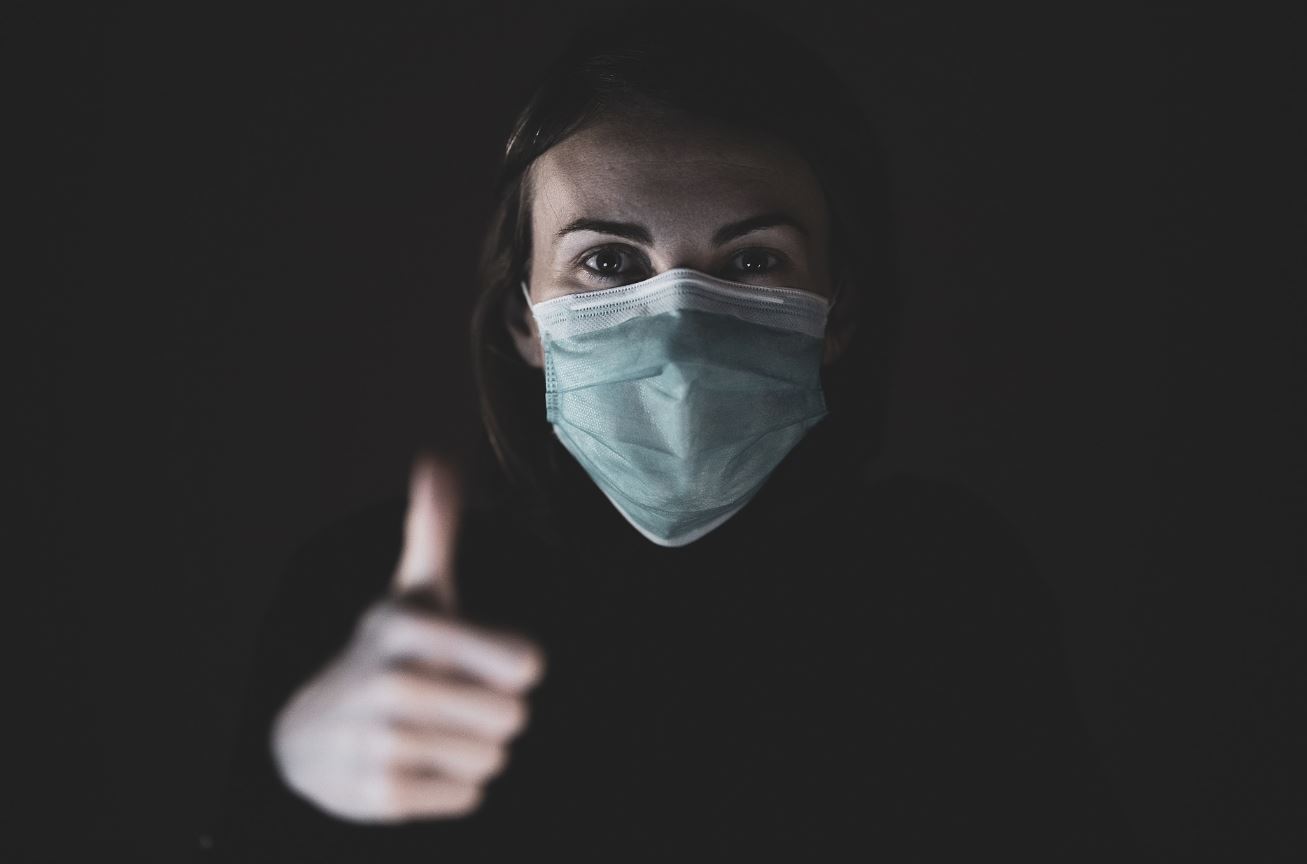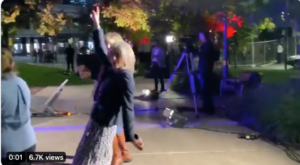
Flinders’ research and thought leadership is continuing to contribute to our state’s adept management of COVID-19.
Vice-Chancellor’s ABC interview
Vice-Chancellor Professor Colin Stirling spoke on ABC radio this morning (5 May, interview begins at approx 2.39.10), commenting on the outstanding role of South Australians in containing the COVID-19 virus, and the University’s hopes for a measured return to classes soon, as restrictions start to ease.
Professor Stirling explained how Flinders is continuing important activities such as research and administration, despite many staff and students working from home. He said the University will ensure students are able to catch up on laboratory work and other practical requirements of their topics through careful re-scheduling of timetables as needed, ahead of return to campus.
The notion of the “flipped classroom” was raised, and how the current situation could advance changes to traditional learning, including a move towards accessing information online prior to lectures then spending class time applying that information.
And the VC pointed out that while COVID-19 is having a substantial impact on the University’s budget, the media focus on international students needs to move beyond their financial contribution to also place value on their important role as ambassadors for the University and the state.
European app to remotely check heart rate
Caring Futures Institute researcher Dr Jeroen Hendriks’ has been working with Maastricht University Medical Centre in the Netherlands on the rapid implementation of a mobile health application that can remotely check heart rate of patients with heart problems, to avoid them going to in-hospital appointments and risk getting COVID-19.
Implementation of the TeleCheck-AF project started four weeks ago in the Maastricht centre and already 27 centres across nine European countries are involved, with 500 patients using the application – although the app is not yet approved for use in Australia.
Cardiologists and specialised atrial fibrillation (AF) nurses at the Maastricht’s cardiology department are using the app to track the heart rhythm and rate of patients with AF (irregular heartbeat). The app records a pulse when the patient places their index finger over the camera on their smartphone for one minute, to measure their heart rhythm.
An algorithm then identifies if the patient has a heart rhythm disorder or is in the normal rhythm, and if their heart rate is too fast or too slow. More details in the Caring Futures Institute news blog.
Illicit drug users examined
Flinders University is a collaborator in an important new study exploring the short and long-term impact of the COVID-19 pandemic on the experiences of Australians who use illicit drugs.
The Australians’ Drug Use: Adapting to Pandemic Threats (ADAPT) Study is one of the first studies globally to talk with people who use illicit drugs about the changes they are experiencing in relation to their drug use, harms, and other challenges and positives they may be experiencing.
This study is being led by researchers from the National Drug and Alcohol Research Centre (UNSW Sydney) in collaboration with Flinders University, Kirby Institute (UNSW Sydney), University of Tasmania, RMIT University, St Vincent’s Hospital, Burnet Institute and The University of Queensland.
Researchers, including Flinders Associate Professor Caitlin Hughes, will record answers from participants during the next year, but possibly over several years to see what sort of long-term impacts COVID-19 and COVID-19 restrictions have on people, and to better inform drug treatment and harm reduction in Australia.
Sewage links to COVID-19 put to the test
Flinders University wastewater experts, including Professor Howard Fallowfield, are working with Water Research Australia, with the support of the Water Services Association of Australia, in leading an Australia-wide investigation to integrate reliable results of sewage testing for SARS CoV-2 with COVID-19 health data on a national basis.
The national “ColoSSoS Project” – Collaboration on Sewage Surveillance of SARS-COV-2 – will track and monitor the presence of the virus that causes COVID-19 and its persistence in the Australian sewerage network, thus providing information on where it is present in the population.
Results from similar efforts in the Netherlands, and more recently in Australia, show that sewage analysis can potentially detect community spread of COVID-19, even before cases are found through the testing of individuals, which makes us confident of our project’s success.
Involving experts in health, microbiology, laboratory testing, wastewater-based epidemiology and policy communication, this initiative is a major collaborative effort across water utilities, health departments and researchers.
The first intensive samplings in Australia have now been taken and are currently undergoing testing.
Exercise on the agenda for minister’s webinar
Dr Sam Elliott, Researcher and Senior Lecturer in Youth Sport at Flinders University, was invited to be part of a webinar hosted last Friday by the SA Minister for Recreation, Sport and Racing, which attracted viewers from 80 state sporting organisations.
The panel, which also included YMCA CEO David Paterson and Felicity Green, Associate Director at SPARK Strategy, addressed topics affecting SA’s sport sector due to the COVID-19 pandemic.
Associate Professor Shane Pill is involved with a series of popular instructional videos that are helping Physical Education teachers during the COVID-19 pandemic.
A series of videos produced in 2018 – featuring students from Canberra Girls Grammar School demonstrating Models of Instruction based on the work of Michael Metzler – are now being referenced by teaching institutions around the world.
These videos were built on research that Associate Professor Pill did with the University of Canberra’s Assistant Professor of Health and Physical Education Dr John Williams, as they analysed approaches used by local Health and Physical Education teachers to teach Physical Education.
The instructional videos have provided a valuable instructional tool to many physical education teachers needing to instruct pupils online, as examples of teaching for effective learning.
Associate Professor Pill was instrumental in linking these videos with SHAPE America (The Society of Health and Physical Educators), enabling this excellent work to reach a broader international audience.
She must have the Night Fever…
 On a light note, SA’s Chief Public Health Officer, Flinders University’s Professor Nicola Spurrier, enjoyed a moment away from the COVID-19 frontline by busting a move when she attended a “quarantine conclusion dance party” hosted outdoors by cabaret favourite Hans – and TV cameras were on hand to capture the moment.
On a light note, SA’s Chief Public Health Officer, Flinders University’s Professor Nicola Spurrier, enjoyed a moment away from the COVID-19 frontline by busting a move when she attended a “quarantine conclusion dance party” hosted outdoors by cabaret favourite Hans – and TV cameras were on hand to capture the moment.

